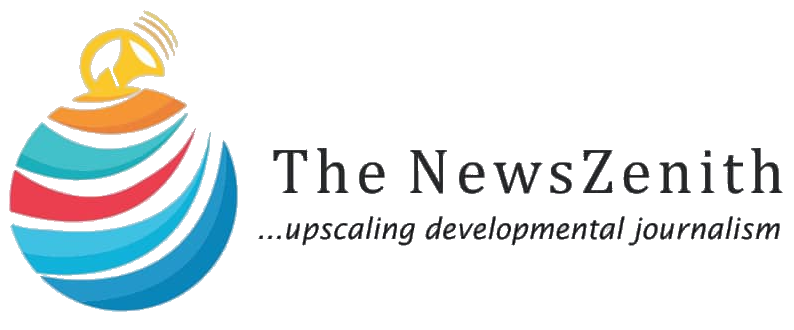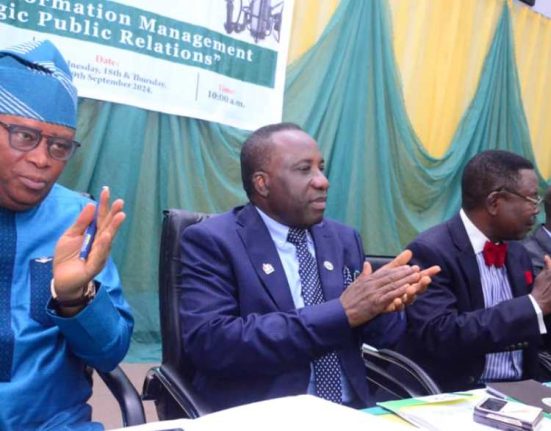By Abdulwarees Solanke
Last week, the Federal Government, through a press release from the Presidency announced sweeping changes in the leadership of the federal public service information system.
The news organisations included the Voice of Nigeria (VON), the News Agency of Nigeria (NAN), the Advertising Practitioners Council of Nigeria, APCON and the Nigerian Press Council.
Others are the Nigerian Television Authority (NTA) and the Federal Radio Corporation of Nigeria (FRCN) among others under the Federal Ministry of Information and National Orientation.
Mr Lanre Issa-Onilu is the new Director-General of the NOA while Mr Salihu Dembos retained his office as DG of NTA. Dr Muhammed Bulama replaces Dr Manshir Liman as DG FRCN while Mr Charles Ebuebu replaces Balarabe Illelah as Director-General of the NBC.
Mr Jibrin Ndace replaces Osita Okechukwu as DG of the VON. Also, President Bola Tinubu appointed Dr Lekan Fadolapo as the Director-General of ARCON, Alhaji Ali M. Ali as the Managing Director of the News Agency of Nigeria (NAN) and Mr Dili Ezughah becomes Executive Secretary of the Nigerian Press Council.
For these appointees to appreciate the gravity of their assignments, it is imperative to interrogate the enthronement of corporate governance in their operations.
They need to learn from the best practices in other nations whose public broadcasters are success stories of impacting positively on the citizenry through the commitment and ingenuity of their governors, directors and managers.
As Managing Directors, Directors-General or other nomenclature they bear, they must operate within the powers that the act, charter or laws which constitute their board of directors allow them.
First, it is imperative that they understand the role of the Board of Directors. The role of the board of directors of any public or corporate institution is to protect public, corporate or shareholders’ interests. This is the motive or instrumentality of the corporate governance mechanism.
Corporate Governance is about transparency and accountability in the operations and decision-making process of an organization. It guarantees stability and sustainability and instils discipline and adherence to principles and commitment to best practices among its leadership and management.
It provides the framework for measuring and strengthening the performance of all operatives. In this instance, the board and its members, of which the Director-General or Managing Director is a prime or key member, become the custodians or the guardian of the corporation.
As its soul, although not usually visible, these men and women who constitute the board are always carefully chosen to ensure that only people of integrity who can give direction or who epitomise the vision and mission of the corporation are brought on board.
Approximating the essence of the corporation to which they are appointed, they serve as the strategic lever of control on the board of management, which are the executive managers responsible for the day-to-day management of the operations of the corporation.
Corporate Governance is to ensure the visible executives, especially the Directors-General and their management teams do not miss their path while they are busy with the difficult task of running the corporation’s affairs.
The board of directors is the perfect instrument for monitoring and evaluating corporate performance.
Not being full-time appointees but coming from different backgrounds with varied experiences and representing diverse interests, they periodically meet to evaluate the progress of the corporation. They set its policies and direction for implementation or execution by the board of management.
They ensure that the executive managers stay faithful or are in fidelity to the ideals, vision and mission of the corporation. State, national or international broadcasters fall into the category of public institutions that must have robust corporate governance mechanisms.
This is to ensure certain altruistic deliverables that will justify their public essence or public service institution.
These values are comprehensively highlighted in “Public Service Broadcasting: A Best Practices Sourcebook”. This is a 2005 seminal publication of the United Nations Educational, Social and Cultural Organisation (UNESCO) and the Asian Media Information and Communication Centre (AMIC). It was edited by Dr Indrajit Banerjee and Kalinga Seneviratne.
The deliverables or values include editorial independence, universality, distinctiveness, diversity and unbiased information education/enlightenment. Other essential values are knowledge, social cohesion, citizenship, accountability and credibility.
Of course, these values of cultural integration, national orientation and patriotism, voice for the minority, respect for diversity and inclusiveness, social and political mobilisation and stimulation of economic productivity and development through their broadcast contents are strategic in nature.
It is, therefore, the board of directors’ function to ensure operational managers do not derail in their processes and content. They should also not be frivolous in the utilisation of state or public resources that are appropriated to them.
So, what is the character of the board of directors and the personality of members that must perform this onerous task of providing leadership for the corporations they are appointed?
The appointment of the board and the visionary function of its members are guided by charters or acts establishing the corporation. And upon board and management performance in terms of values they deliver or how they meet audience expectations are measured.
It is the quality of men and women that are tapped, whether by direct appointment following and competitive recruitment process. It may also be through an election at annual general meeting or even validation of presidential appointment by the parliament.
In a nutshell, the consideration for board and leadership appointments in public media is based on diversity, public interest, experience, professionalism and expertise, intellect, influence and integrity.
This is the gist of board appointment and corporate governance. Those appointed to board of public media are to represent public interest, prevent abuse and protect public trust.
Solanke is Deputy Director,/Head, Strategic Planning & Corporate Development Department, Voice of Nigeria, Wuse 2, Abuja FCT (korewarith@yahoo.com, 08090585723)
Do you have a flair for Citizenship Journalism? Share story(ies) of happenings in your area with The NewsZenith on WhatsApp: 08033668669 or thenewszenith@gmail.comsetting



1 Comment